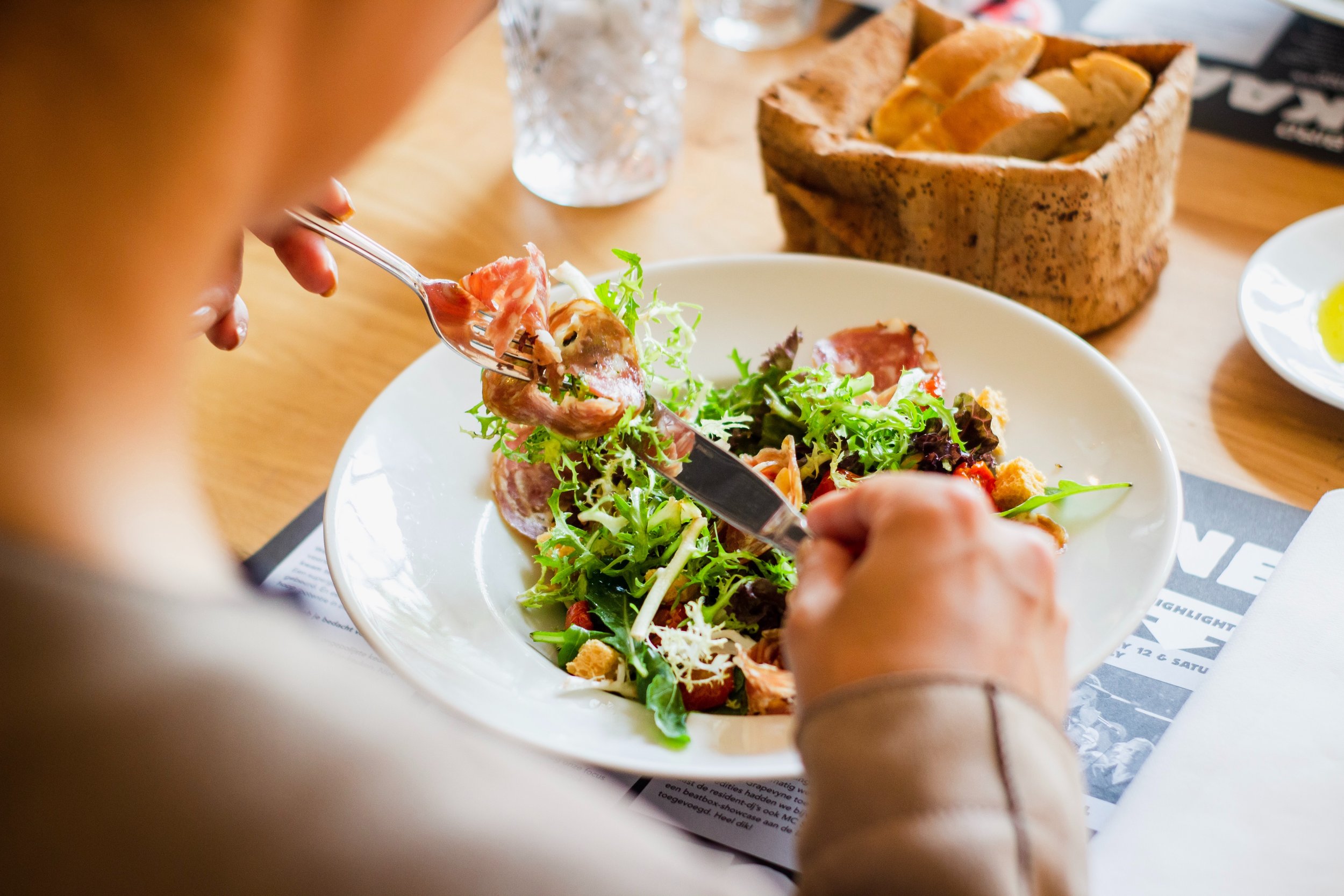Intuitive Eating, Health at Every Size©, & Anti-Diet: Tell me more.
Anti-diet, Health at Every Size©, and Intuitive Eating
I toss around the words anti-diet, Health at Every Size (HAES)©, and Intuitive Eating (IE) a good bit, but what the heck do they actually mean? Are they different, or are they the same? This post will offer a basic explanation of what these three movements are.
Also, disclaimer: I do not claim to be an expert on these subjects by any means–I am still learning, just as we all are. But I have religiously followed the experts for quite a few years now and may have learned a thing or two along the way. The following are those things.
These three subjects–Intuitive Eating, HAES©, and anti-diet work together and are all in contrast to the diet/weight loss industry which tells us that in order to be healthy and a valuable member of society, we must be thin.
They all have the goal of calling out diet culture for what it is: a highly discriminatory, soul sucking, prevailing system of unchallenged beliefs that makes us feel like absolute dog crap if we don’t meet it’s very rigid set of standards–a thin body.
Diet culture divides foods into strict categories of “good” or “bad” and makes us all feel morally inferior if we choose to indulge in the wrong types of foods. These foods are constantly changing as well (wait, is it carbohydrates, fruit, or fat that are bad now…and where the heck do eggs stand??), which makes us all feel like failures all of the time because how the heck can we keep up?
I also want to be very clear about something: these movements are all evidence-based (see blog post on research here) and are all pro-health.
Not focusing on weight loss does not mean not focusing on health.
They can be used and practiced in tandem, and many providers use the principles and messages of all three in practice.
Anti-Diet
The anti-diet movement encourages the pursuit of healthy behaviors as opposed to weight loss as a way of achieving long term physical health.
It is well known that 99% of diets encourage restriction (whether in the amount, type, or timing of foods) as a way of shrinking one’s body in order to obtain health.
But we know that weight loss doesn’t always lead to better health, which is why diets are barking up the wrong tree.
Practitioners who label themselves as anti-diet teach that a person can achieve better health (using markers such as improved cholesterol, blood sugar, blood pressure, etc) independent of weight loss.
There is no formal organization that is tied to the movement, but is instead a belief system that practitioners and individuals can adopt and follow as they would like.
Health at Every Size©
HAES© is the formal social justice movement for anyone with a body. To quote the Association of Size Diversity and Health, “It is a movement working to promote size-acceptance, to end weight discrimination and to lessen the cultural obsession with weight loss and thinness".
It is a belief system that promotes health equity and communicates that pursuing health is not a moral imperative.
Meaning, we cannot judge others who are unable to or choose not to pursue health for whatever reason at all whereas diet culture tells us that we most certainly should judge them very harshly.
It also promotes and advocates for access to appropriate healthcare for all individuals, no matter their size.
For more info about HAES, see here: https://asdah.org/
And here: https://haeshealthsheets.com/
Intuitive Eating
Intuitive Eating is a self-care eating framework, created by the dietitians Elyse Resch and Evelyn Tribole, that includes 10 principles and is essentially a “how-to” guide for increasing interoceptive awareness, which is the ability to understand and respond to our body’s messages.
It is a self-empowerment tool that puts you back in the driver’s seat of your own body and mind.
Intuitive Eating is anti-diet and HAES© aligned, and offers a practical guide for how to implement these belief systems into our lives.
For more information about Intuitive Eating, see here: http://www.intuitiveeating.org/
There is so much to learn about all of these, and this post only grazes the surface. I encourage you to do your own research, ask the questions, and have the conversations.
This can be a huge paradigm shift for many, and beginning to change the way we think can take time.
If you haven’t read my post on weight and health, I recommend that one next. In order to get behind this movement, you must deeply believe and logically understand that you cannot tell a person’s health status by looking at them.
That is where we all must start if we want to change our minds, and then ultimately change our culture.

